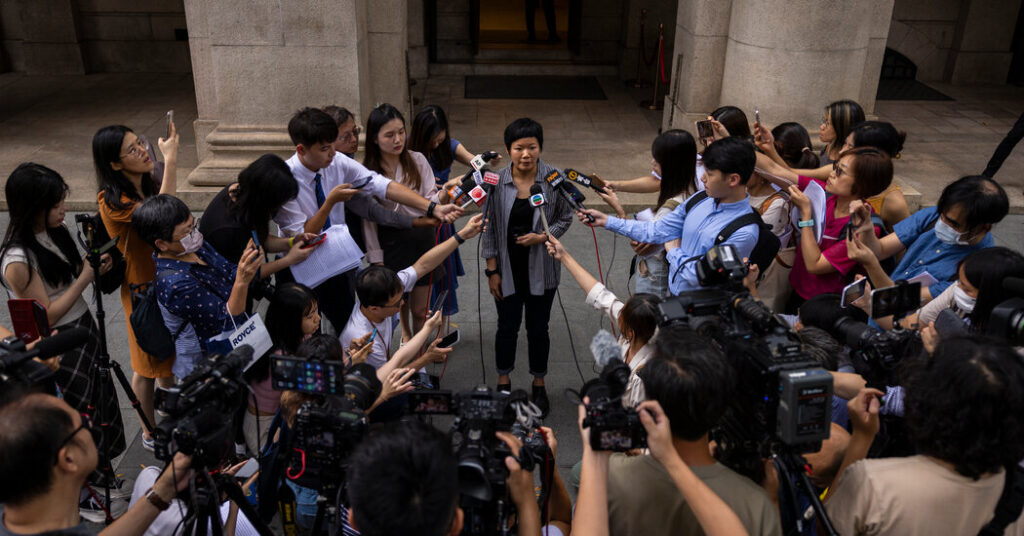In a rare victory for journalism amid a crackdown on the news media in Hong Kong, the city’s top court on Monday overturned the conviction of a prominent reporter who had produced a documentary that was critical of the police.
Choy Yuk-ling, who also goes by the name Bao Choy, is best known in Hong Kong for producing investigative documentaries examining police conduct in 2019, when the city was roiled by months of antigovernment protests.
Among the documentaries she produced was a prizewinning episode of “Hong Kong Connection,” a news program by the city’s public broadcaster RTHK. The episode examined who was behind a mob attack on a group of protesters and commuters in a train station on July 21, 2019, that left 45 people injured, and why the police were slow to respond.
Ms. Choy had used a public database to look up the license plates of vehicles caught on video transporting the suspected attackers, and traced them to community leaders in Hong Kong’s outlying villages. She was arrested in 2020 and found guilty the next year of making false statements to obtain car registry records. A court ordered her to pay a fine of 6,000 Hong Kong dollars, about $775. She later appealed the conviction.
On Monday, five judges from the Court of Final Appeal voted unanimously to overturn the conviction. They argued that Ms. Choy may not have knowingly made a false statement, given that many news media companies had filed similar applications for information. By convicting Ms. Choy on the basis of inferring that she had broken the law knowingly, “substantial and grave injustice was done to her,” the court said in the ruling.
In remarks to reporters outside court, Ms. Choy said that she was happy with the conclusion of a legal fight that had lasted 30 months.
“It seems I haven’t felt happy about something in a long time,” she said. “Maybe a lot of people feel the same way. So let us all enjoy this moment of happiness.”
Francis Lee, a professor at the School of Journalism and Communication at the Chinese University of Hong Kong, said the ruling was a hard-fought victory for Ms. Choy and was a validation of the rights of journalists.
“One might also say that journalists should not be charged for using the car plate registry for reporting purposes in the first place, and the victory came only because of the courage and persistence of Choy,” he said.
The Hong Kong Journalists Association said Ms. Choy’s efforts had helped “defend the space the industry ought to have in searching public records. We deeply respect Ms. Choy’s bravery in protecting press freedom through her actions.”
Ms. Choy’s conviction in 2021 had created a chilling effect on news outlets, Ronson Chan, the chairman of the journalists’ group, said in an interview. But even with that conviction overturned, Mr. Chan noted, the city’s journalists face severe constraints under a national security law Beijing imposed in 2020. That law makes it illegal to incite hatred toward the government, a vaguely defined offense that journalists risk running afoul of if their reports are critical of the authorities.
The broader conditions for independent journalism remain challenging in Hong Kong, with laws criminalizing “seditious publications.” Some of the city’s most outspoken independent outlets have shuttered following raids. Editors and writers are facing long trials over their work.
Ms. Choy co-founded an independent media outlet called The Collective HK in February, pledging to “monitor the rich and powerful.” She was a recipient of the Nieman fellowship at Harvard University in 2022.
“In recent years, we will find that a lot of things have disappeared without a word, but I believe that inner conviction is very hard to take away,” she said on Monday.


